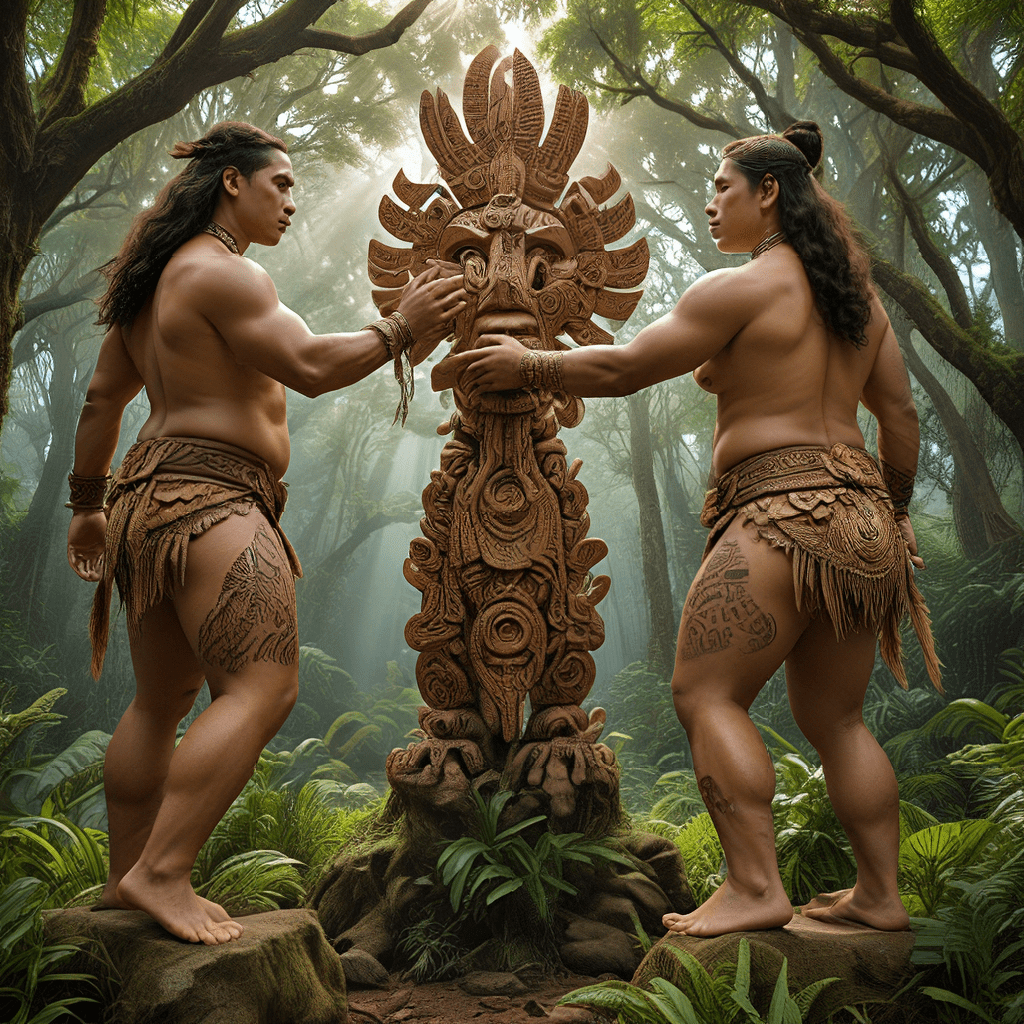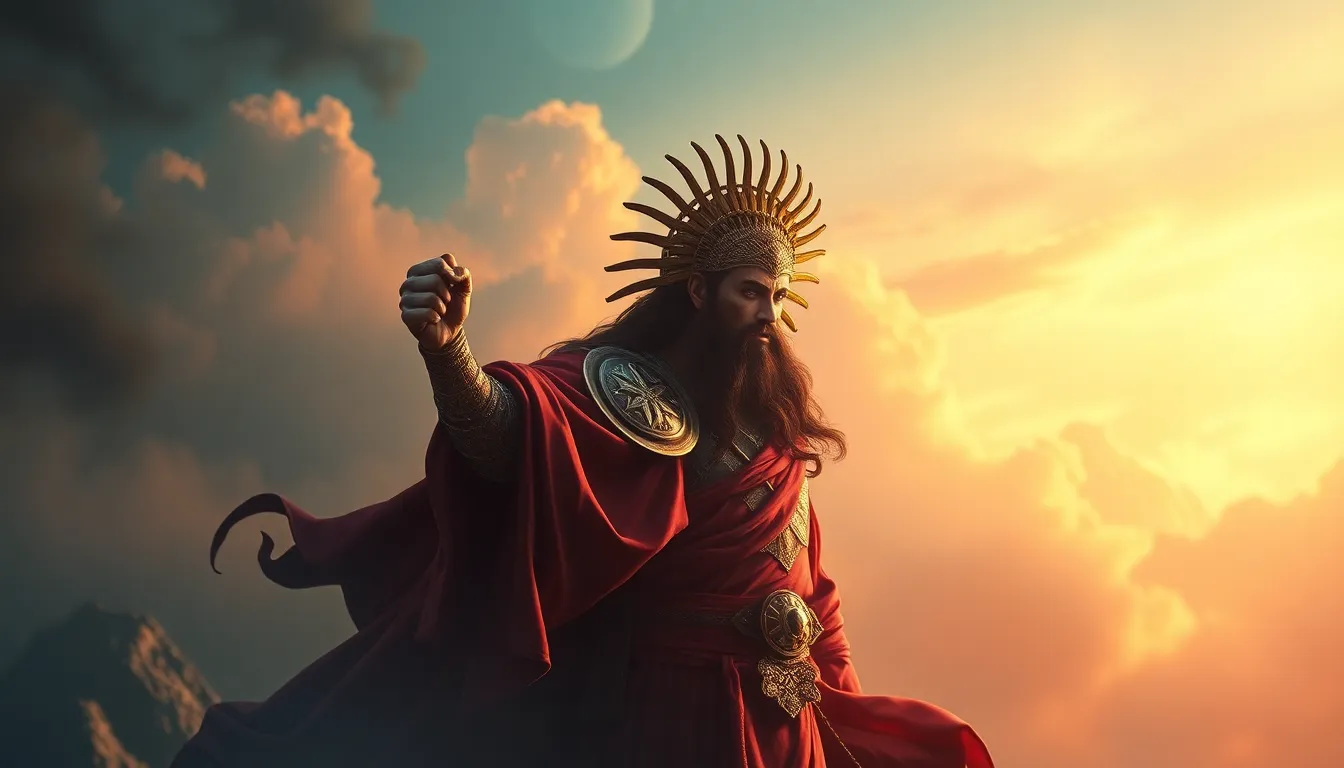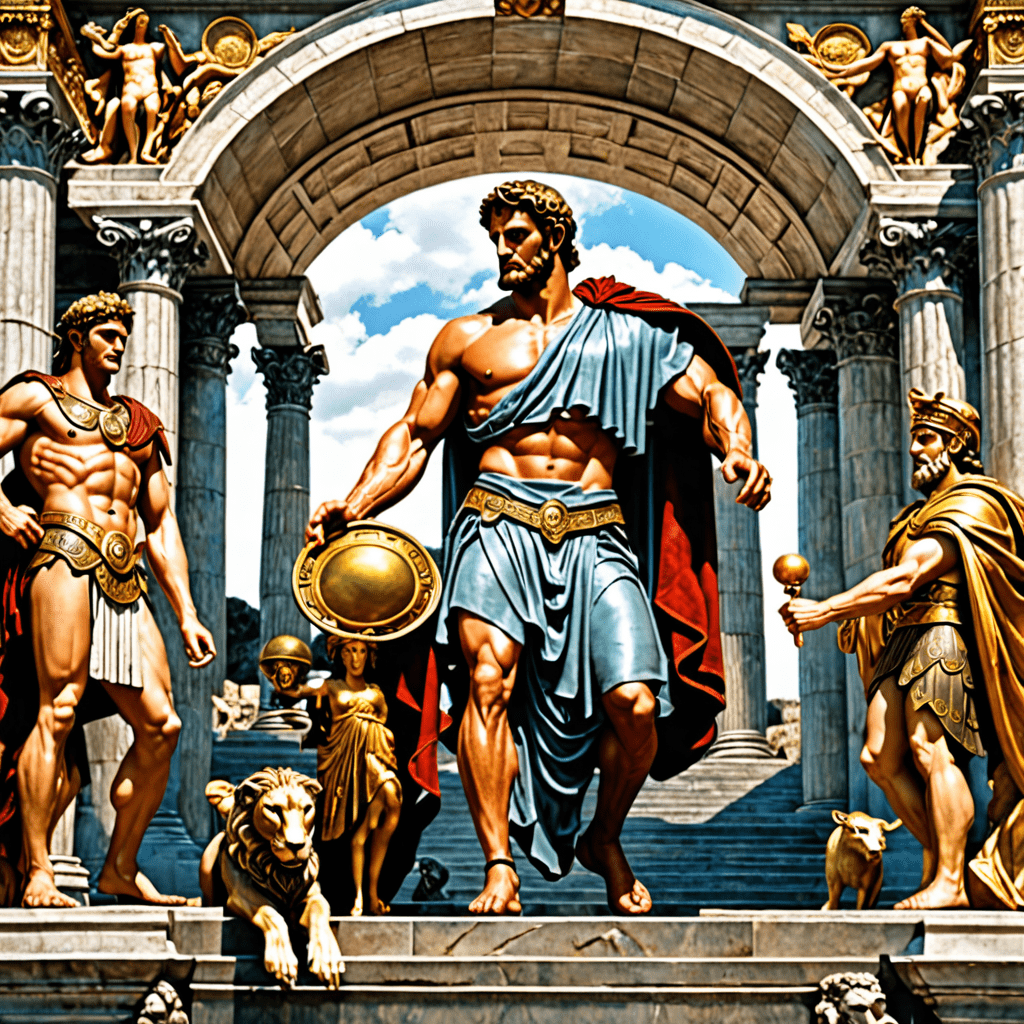Maori Cosmology: The Foundation of a Balanced World
Maori mythology, the rich tapestry of stories and beliefs of the indigenous people of New Zealand, holds profound lessons about the interconnectedness between humanity and nature. This worldview, known as Maori cosmology, provides a framework for understanding the intricate balance and harmony that exists within the natural world. At its core lies the belief that everything in the universe is interconnected, from the smallest insect to the largest mountain. This interconnectedness is reflected in the creation myth, which tells the story of how the gods, Ranginui (the sky father) and Papatuanuku (the earth mother), were separated by their children, the gods of the natural world. This separation brought forth life and diversity, but it also underscored the importance of maintaining a delicate equilibrium between the various elements of the universe. This concept of balance is central to understanding Maori values and their relationship with the environment.
The Importance of Whanaungatanga: Relationships and Reciprocity
The Maori concept of whanaungatanga highlights the importance of relationships and reciprocity in maintaining a harmonious existence with nature. Whanaungatanga encompasses a wide range of relationships, including those between people, and between people and the natural world. It signifies a sense of interconnectedness and shared responsibility. This concept encourages individuals to view themselves as part of a larger web of life, where everyone has a role to play. For instance, the tangata whenua, the people of the land, are expected to reciprocate the gifts of nature by caring for and protecting it. This reciprocity is essential for maintaining ecological balance and ensuring the well-being of all living beings.
Tangata Whenua: Humans as Guardians of the Land
The concept of tangata whenua reinforces the notion that humans are not separate from nature, but rather an integral part of it. This term literally translates to "people of the land" and signifies a deep connection and responsibility towards the environment. The tangata whenua are not just inhabitants of the land, but its guardians, tasked with preserving its natural resources and ensuring its flourishing for future generations. This concept emphasizes the importance of sustainable practices, respecting the boundaries of nature, and minimizing human impact on the ecosystem.
The Role of Atarua: The Natural World as a Living Entity
Maori mythology recognizes the natural world as a living, sentient entity known as atarua. This concept goes beyond simply viewing nature as a collection of resources to be exploited. Instead, it acknowledges the intrinsic value and spiritual significance of every element of nature, from the mountains and rivers to the forests and oceans. The atarua is seen as a source of life and sustenance, but also as a sacred presence that deserves respect and reverence. This perspective necessitates a mindful approach to interacting with nature, avoiding unnecessary harm and recognizing its inherent worth.
The Power of Mana: Respecting the Sacredness of Nature
Mana is a powerful force in Maori cosmology, representing the life force, energy, and sacredness that permeates the universe. It is present in all things, animate and inanimate, and can be invoked or disrupted through human actions. Mana is associated with the concept of tapu (sacredness), which signifies respect for the power and significance of natural elements. By understanding the presence of mana in nature, Maori people are encouraged to approach the environment with humility, acknowledging its power and respecting its sacredness. This fosters a sense of reverence for the natural world and promotes sustainable practices that minimize harm and disruption to the delicate balance of mana.
The Consequences of Imbalance: The Impact of Human Actions on the Environment
Maori mythology offers powerful warnings about the consequences of disrupting the delicate balance of nature. These stories often depict the destructive effects of human greed, arrogance, and disregard for the environment. One such tale is the story of Maui, a legendary trickster figure who attempted to slow down the sun to lengthen the days. While his intention may have been noble, his actions ultimately led to the sun becoming too hot and scorching the land. This myth serves as a reminder that even seemingly minor interventions in the natural world can have unforeseen and detrimental consequences.
Another example is the story of Tane Mahuta, the god of the forest, who inadvertently caused the death of his brother, the god of the ocean. This tragic event highlights the interconnectedness of all living things and the importance of respecting the boundaries of each ecosystem. The Maori worldview emphasizes that human actions can have ripple effects throughout the environment, potentially disrupting the natural equilibrium and leading to imbalances that can harm all living beings.
The Lessons of the Gods: Stories that Teach Harmony and Sustainability
Maori mythology is filled with stories about gods and goddesses who embody the values of balance and harmony with nature. These myths serve as moral exemplars, teaching valuable lessons about how to live in a sustainable way. For example, the story of Rongo, the god of cultivated food, emphasizes the importance of respecting the land and harvesting food responsibly. Rongo is often depicted carrying a digging stick, symbolizing the need for careful cultivation and avoiding over-exploitation of natural resources.
The story of Hine-nui-te-po, the goddess of the underworld, teaches the importance of honoring the cycle of life and death. This myth recognizes that death is a natural part of the ecosystem and that all living beings play a vital role in maintaining the balance of nature. By understanding and accepting the cyclical nature of life, Maori people are encouraged to live in harmony with the natural world, respecting its inherent rhythms and processes.
The Concept of Kaitiaki: Stewardship and Responsibility
The Maori concept of kaitiaki encapsulates the deep sense of responsibility that Maori people have towards the environment. Kaitiaki refers to the role of guardian or caretaker, emphasizing the importance of stewardship and safeguarding the natural world for future generations. This concept goes beyond simply protecting nature from harm; it involves actively managing and nurturing the environment to ensure its long-term health and sustainability.
Kaitiaki encompasses a wide range of practices, including sustainable fishing methods, responsible forestry practices, and the preservation of cultural landscapes. This concept emphasizes the importance of intergenerational responsibility, recognizing that the actions of today will have long-term consequences for future generations. By embracing the role of kaitiaki, Maori communities are committed to ensuring the continued well-being and flourishing of the environment for generations to come.
Modern Applications of Maori Mythology: Finding Balance in a Changing World
In the face of growing environmental challenges, the lessons of Maori mythology are becoming increasingly relevant. The principles of balance, harmony, and interconnectedness are crucial for addressing issues such as climate change, pollution, and biodiversity loss. The concept of whanaungatanga can be applied to foster collaboration and shared responsibility for environmental protection, while the role of kaitiaki encourages individuals and communities to take ownership of their environmental impact.
By integrating the wisdom of Maori mythology into modern environmental practices, we can move towards a more sustainable and harmonious relationship with the natural world. This involves embracing a holistic approach to environmental management, recognizing the interconnectedness of all living things and the need to respect the boundaries of nature. By incorporating the values of balance, reciprocity, and respect for the environment, we can create a future where humans and nature can co-exist in a mutually beneficial way.
The Future of the Maori Worldview: Protecting the Environment for Generations to Come
The Maori worldview offers a powerful framework for understanding and addressing the environmental challenges of our time. By embracing the principles of balance, harmony, and interconnectedness, we can pave the way for a more sustainable and just future. The role of kaitiaki reminds us that we have a responsibility to care for the environment for generations to come, while the lessons of the gods guide us towards living in harmony with nature.
As we face an uncertain future, the wisdom of Maori mythology provides invaluable insights into how to create a world where humans and nature can thrive together. By understanding and applying these ancient teachings, we can move towards a future where the environment is valued, protected, and respected, ensuring the well-being of all living beings for generations to come.
FAQ
Q: What is the main message of Maori mythology regarding nature?
A: Maori mythology emphasizes the importance of balance and harmony with nature, highlighting the interconnectedness of all living things and the need to respect the boundaries of the natural world.
Q: How does Maori mythology encourage sustainable practices?
A: Maori stories teach valuable lessons about respecting the land, harvesting resources responsibly, and recognizing the cyclical nature of life. The concept of kaitiaki further emphasizes the importance of stewardship and safeguarding the environment for future generations.
Q: What are some modern applications of Maori mythology in environmentalism?
A: The principles of balance, harmony, and interconnectedness can be applied to address modern environmental challenges like climate change and pollution. The concept of whanaungatanga can foster collaboration, while the role of kaitiaki encourages individual responsibility for environmental protection.
Q: How can we apply the lessons of Maori mythology to our own lives?
A: By embracing the values of respect, responsibility, and interconnectedness, we can cultivate a more harmonious relationship with nature. We can strive to live sustainably, minimize our environmental impact, and advocate for the protection of the natural world.



